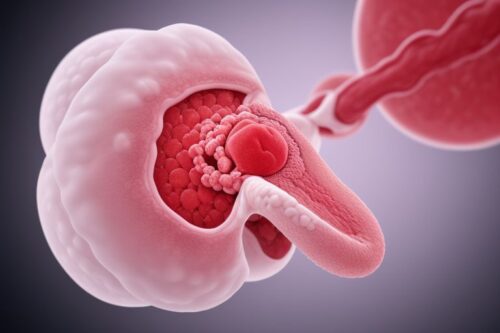
Blood cancer, also known as hematologic cancer, affects the production and function of blood cells. It primarily starts in the bone marrow where blood is produced. In women, blood cancer symptoms can often go unnoticed or be mistaken for less serious conditions, making early detection critical. Recognizing the early signs of blood cancer can lead to timely treatment and improve survival rates.
In this article, we will explore the most common blood cancer symptoms in women, explain the different types of blood cancer, and provide insights on when to seek medical advice. Whether you’re looking for more information for yourself or a loved one, understanding the warning signs can make a crucial difference in fighting this disease.

What Is Blood Cancer?
Blood cancer refers to cancers that affect the blood, bone marrow, or lymphatic system. There are three main types of blood cancer:
- Leukemia: Affects the blood and bone marrow, leading to the production of abnormal white blood cells.
- Lymphoma: Targets the lymphatic system, which is part of the immune system.
- Myeloma: Affects plasma cells, a type of white blood cell that helps produce antibodies to fight infections.
Each type of blood cancer has different symptoms, but many overlap. Let’s dive into the most common blood cancer symptoms in women and how they present themselves.
Common Blood Cancer Symptoms in Women
1. Unexplained Fatigue
Fatigue is one of the most common and early symptoms of blood cancer. Unlike regular tiredness, blood cancer-related fatigue is persistent and doesn’t improve with rest or sleep. This happens because blood cancer interferes with the production of healthy blood cells, particularly red blood cells, leading to anemia and low oxygen levels in the body.
When to Worry: If you experience severe, ongoing fatigue without a clear cause, especially if it's accompanied by other symptoms, consult your doctor.
2. Unexplained Weight Loss
Sudden, unintentional weight loss is another potential red flag. Women with blood cancer may lose weight due to the body’s inability to absorb nutrients properly or due to the cancer’s effect on metabolism. This weight loss is often rapid and may happen without significant changes in diet or exercise habits.
When to Worry: If you lose more than 10% of your body weight within six months without trying, it's a sign to seek medical advice.
3. Frequent Infections
Blood cancer can weaken the immune system by interfering with the body’s ability to produce healthy white blood cells, which are crucial for fighting infections. Women with blood cancer may notice that they are getting infections more often and that these infections take longer to heal.
Common infections include:
- Respiratory infections like colds and pneumonia
- Urinary tract infections (UTIs)
- Skin infections
When to Worry: If you find yourself frequently ill with infections or if mild infections become severe, it could indicate an underlying immune issue like blood cancer.
4. Bruising and Bleeding Easily
Blood cancer often affects the body’s ability to produce platelets, which are responsible for blood clotting. As a result, women with blood cancer may notice easy bruising or frequent nosebleeds. Even minor bumps or injuries can lead to large bruises or prolonged bleeding.
Where to Look: Bruises may appear in unusual places like the back, stomach, or limbs, and you may experience frequent gum or nosebleeds.
When to Worry: If you notice unusual bruising or bleeding without injury, speak to your doctor, especially if it’s accompanied by other symptoms.
5. Swollen Lymph Nodes
Lymph nodes are small glands that help filter harmful substances and are a part of the immune system. In women with blood cancer, particularly lymphoma, lymph nodes may become swollen as cancer cells accumulate in them. You may notice painless lumps in areas like the neck, armpits, or groin.
When to Worry: If you notice persistent swelling in your lymph nodes that doesn’t go away within a few weeks, especially if it's accompanied by weight loss or fatigue, seek medical attention.
6. Bone and Joint Pain
Blood cancer, particularly leukemia and myeloma, can cause bone pain or tenderness. This occurs when abnormal blood cells accumulate in the bone marrow, leading to pressure and discomfort in the bones and joints. Women may notice this pain most commonly in the legs, hips, or lower back.
When to Worry: If you experience unexplained, persistent bone or joint pain, especially at night or after physical activity, it’s important to see a doctor.
7. Night Sweats
Many women with blood cancer experience severe night sweats that drench their clothing and bedding. These sweats are not related to room temperature or physical activity and may be accompanied by fever or chills.
When to Worry: If night sweats are frequent, heavy, and unexplained, along with other symptoms like weight loss or fatigue, it could be a sign of an underlying condition like blood cancer.
8. Fever and Chills
A persistent low-grade fever that lasts for weeks without a clear cause can be a sign of blood cancer. The body often responds to cancer by producing fever as part of the immune response. These fevers are usually mild but consistent, sometimes accompanied by chills and sweating.
When to Worry: If you experience ongoing low-grade fevers that come and go without explanation, it's worth investigating further.
9. Paleness or Jaundice
Women with blood cancer may notice their skin becoming paler than usual due to anemia, a result of the cancer's interference with red blood cell production. In some cases, the skin may take on a yellowish tint, known as jaundice, if the liver is affected by the cancer.
When to Worry: If you notice your skin becoming unusually pale or yellow, along with fatigue or weight loss, consult a healthcare provider.
10. Shortness of Breath
Shortness of breath can occur due to a lack of healthy red blood cells (anemia), which reduces the oxygen supply to your organs and tissues. Women with blood cancer may feel winded or find it difficult to catch their breath, even during mild activities like walking or climbing stairs.
When to Worry: If you experience unexplained shortness of breath that worsens over time, particularly when accompanied by fatigue or chest pain, seek medical advice.
When to See a Doctor
If you or a loved one experience any of the symptoms listed above, especially if they persist for weeks or worsen over time, it’s important to consult a healthcare provider. Blood cancer symptoms in women can often be mistaken for other common conditions, which is why early detection is key.
Here’s when you should seek medical help:
- Persistent fatigue that doesn’t improve with rest
- Unexplained weight loss
- Frequent infections or slow healing wounds
- Swollen lymph nodes that last for more than a few weeks
- Any combination of the symptoms listed above
Early detection can lead to more effective treatment options and a better prognosis.
How Blood Cancer Is Diagnosed
If you suspect that you may have blood cancer, your doctor will likely start with a physical exam and blood tests to check for abnormal levels of white blood cells, red blood cells, and platelets. Additional tests may include:
- Bone Marrow Biopsy: A sample of bone marrow is taken to look for abnormal cells.
- Lymph Node Biopsy: If swollen lymph nodes are present, a biopsy may be performed to check for lymphoma.
- Imaging Tests: CT scans, MRI, or X-rays may be used to look for tumors or organ involvement.
These tests will help determine the type and stage of blood cancer, which is essential for deciding the best course of treatment.
Frequently Asked Questions (FAQ)
1. Can blood cancer be cured?
While some types of blood cancer can be cured, others can be managed long-term with treatment. The prognosis depends on the type of blood cancer, the stage at diagnosis, and the individual’s overall health.
2. How is blood cancer treated?
Treatment options for blood cancer include chemotherapy, radiation therapy, stem cell transplants, and targeted therapies. The treatment plan will depend on the specific type and stage of the cancer.
3. Is blood cancer hereditary?
Some forms of blood cancer have a genetic component, meaning they can run in families. However, many cases occur without a known family history.
4. Can blood cancer symptoms come and go?
Yes, some symptoms of blood cancer, such as fatigue, fevers, or infections, may come and go. However, they tend to persist or worsen over time as the disease progresses.
5. What are the early signs of blood cancer in women?
The earliest signs often include persistent fatigue, frequent infections, unexplained bruising, and weight loss. It’s important to pay attention to your body and consult a doctor if you experience any of these symptoms.
Blood cancer symptoms in women can be subtle but recognizing them early can lead to faster diagnosis and treatment. By staying informed and being proactive about your health, you can improve your chances of catching the disease early and accessing the best possible care.

